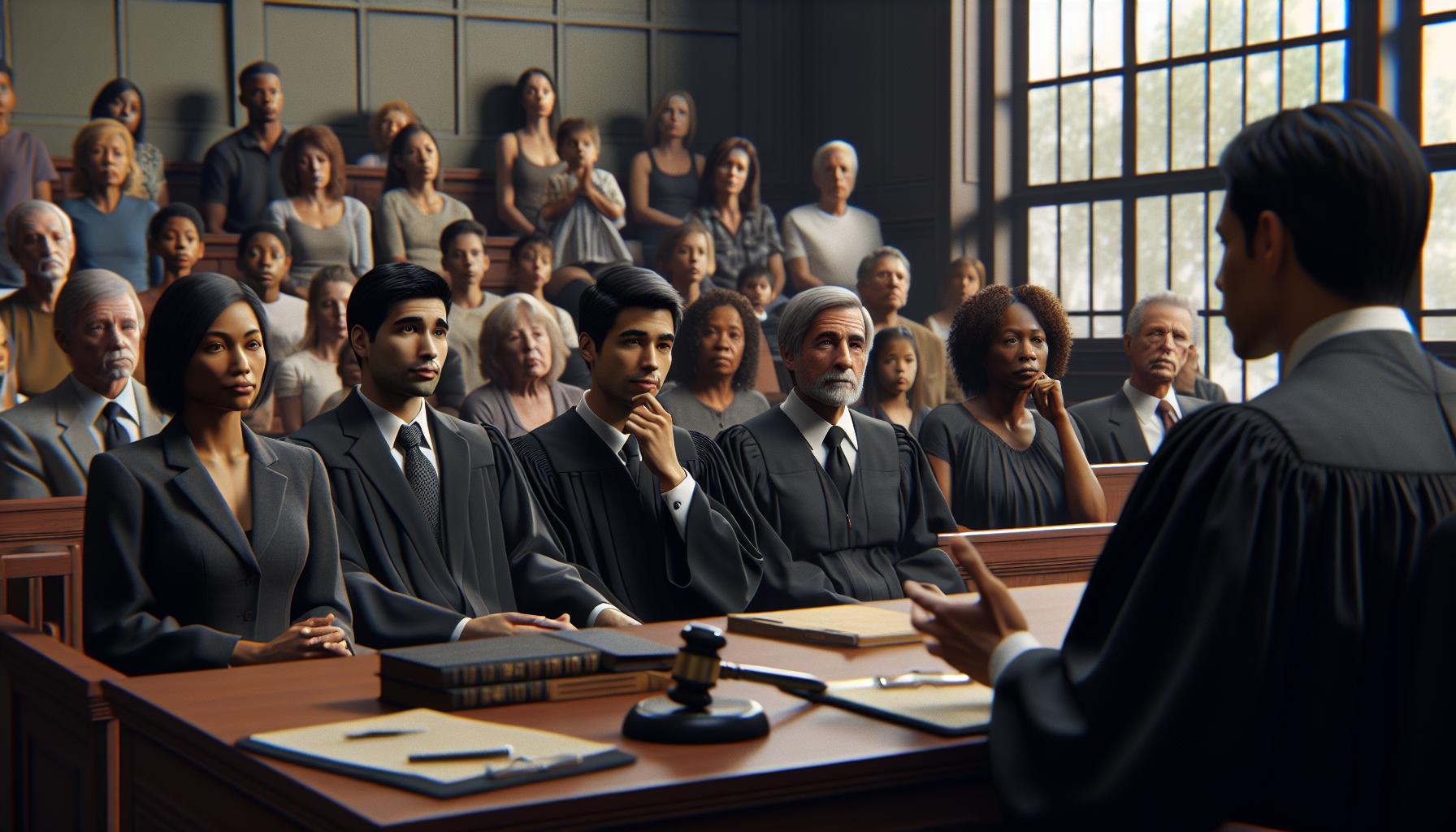As a huge fan of true crime storytelling, I was thrilled when Serial returned with its third season. This season takes a deep dive into the American criminal justice system, exploring the complexities and nuances of real cases that unfold in a Cleveland courthouse. Unlike previous seasons, which focused on a single case, this one offers a broader perspective on the lives affected by the system.
Through compelling narratives and intimate interviews, Serial Season 3 sheds light on the often-overlooked stories of everyday people entangled in legal battles. It’s a thought-provoking exploration that challenges our understanding of justice and accountability. Join me as I unpack the standout moments and key themes that make this season a must-listen for anyone interested in the intricacies of law and humanity.
Key Takeaways
- Broad Examination of the Criminal Justice System: Unlike previous seasons, Season 3 focuses on various cases in a Cleveland courthouse, revealing the complexities and systemic biases within the American legal framework.
- Personal Narratives and Humanization: The podcast emphasizes the real-life experiences of defendants, victims, and their families, showcasing the emotional toll and personal stories behind legal battles.
- Key Themes of Justice and Accountability: Major themes include the unpredictability of justice and the importance of empathy, prompting listeners to reflect on fairness and the human elements of legal issues.
- Diverse Episode Highlights: Each episode presents unique insights, such as the jury selection process, the consequences of plea deals, and the financial burdens of obtaining legal representation, enhancing the understanding of legal dynamics.
- Critical Acclaim and Audience Engagement: Season 3 received positive feedback for its compelling storytelling and investigative depth, fostering discussions around criminal justice reform among listeners.
- Unique Storytelling Approach: The multifaceted narrative style engages audiences by intertwining different perspectives and experiences, making complex legal issues accessible and relatable.
Serial Podcast Season 3
Serial Podcast Season 3 offers a compelling exploration of the American criminal justice system, focusing specifically on a Cleveland courthouse. Each episode dives into different cases, showcasing the complexity of legal processes and their impact on individuals’ lives. The approach shifts from investigating a single case, as seen in past seasons, to a multi-faceted perspective that captures a range of experiences.
Listeners encounter a variety of narratives, from defendants navigating charges to lawyers grappling with courtroom dynamics. These stories reveal the emotional weight carried by those entangled in the system. Through intimate interviews, the podcast highlights the struggles, hopes, and resilience of everyday people confronting legal hurdles.
Key themes in this season include justice’s unpredictability and the importance of understanding the human side of legal issues. The storytelling engages an audience eager to comprehend the broader implications of the criminal justice system, fostering discussions about accountability and fairness.
Key Themes Explored

This season of Serial delves into significant themes, particularly surrounding the criminal justice system and the personal experiences of those affected by it. Each theme highlights important aspects of justice that resonate deeply with listeners.
Criminal Justice System
The podcast examines the intricacies of the American criminal justice system. It reveals how systemic biases influence outcomes for defendants across various cases. Focused on a Cleveland courthouse, the series illustrates the complexities of legal proceedings, showing how each player’s choices shape the trajectory of a case. The narratives underscore the unpredictability of justice, emphasizing that not all outcomes align with legal expectations. By exploring various cases, I notice the broader implications of policies and practices, prompting serious reflection on fairness and accountability within the system.
Personal Stories of the Incarcerated
Personal narratives of individuals behind bars form a crucial theme this season. Each episode presents real-life accounts that humanize the often abstract discussions surrounding incarceration. I feel the emotional weight of these stories, as they reveal struggles, hopes, and fears of those navigating the legal system. Interviews with incarcerated individuals provide insight into their lives, illustrating the profound impact of their circumstances on families and communities. These stories accentuate the need for empathy and understanding, reminding listeners that each case involves real people, often with compelling backstories that contribute to broader debates about criminal justice reform.
Episode Breakdown

This section offers a detailed look at the major highlights of each episode and the recurring characters who shape the season’s narrative. Understanding these elements enhances the overall experience of Serial’s third season.
Major Highlights of Each Episode
- Episode 1: “The Case of the Missing Car”
Explores the case of a stolen vehicle linked to an ongoing investigation. The emotional turmoil of the victim and the investigator’s efforts to solve the case set the tone for the season. - Episode 2: “The Guilty Party”
Focuses on a plea deal and the complexities surrounding the legal system. This episode highlights the pressure on defendants and the weighing of personal interests against legal obligations. - Episode 3: “Trial by Jury”
Delves into the jury selection process. The episode illustrates how jurors’ biases can inadvertently influence trial outcomes, offering insight into the unpredictability of justice. - Episode 4: “The Unseen Consequences”
Examines the aftermath of a conviction. Victims, defendants, and families share their stories, showcasing how systemic failures often lead to broader societal issues. - Episode 5: “Life Sentences”
Features personal accounts from individuals facing lengthy sentences. Their narratives reveal the profound emotional and social ramifications of long-term incarceration. - Episode 6: “The Price of Justice”
Highlights the financial burdens of legal actions. The episode explores how monetary constraints affect access to fair representation, emphasizing inequities within the system.
- Judge
Presides over court proceedings, embodying the authority of the legal system. The judge’s decisions significantly affect case outcomes, reflecting systemic biases. - Prosecutor
Represents the state in trials, shaping cases against defendants. The prosecutor’s motivations and methods reveal the complexities of navigating the justice system. - Defense Attorney
Advocates for defendants, often facing challenges due to public perception and financial limitations. Their role illustrates the struggle for fair representation. - Victims and Families
Provide firsthand accounts of how legal issues impact their lives. Their stories personalize the statistics, drawing attention to the human cost of justice. - Defendants
Share their experiences within the court system, highlighting their vulnerabilities. Their narratives humanize the legal process, prompting reflection on fairness and accountability.
This breakdown of episodes and key characters enriches the listener’s understanding of the narrative arcs and overarching themes explored in Serial’s third season.
Critical Reception

The critical reception of Serial’s third season showcases a blend of audience enthusiasm and expert analysis, reflecting its impact on discussions about the criminal justice system.
Audience Reaction
Listeners celebrated the podcast’s insightful approach to criminal justice. Many appreciated the season’s broader narrative scope, which moves beyond individual cases to explore systemic issues. Audience members highlighted the compelling storytelling and emotional depth in episodes. Strong engagement on social media platforms emphasized listeners’ connections to the personal stories shared throughout the season. Numerous reviews noted that the diverse cases presented led to a richer understanding of the complexities within the legal system, prompting discussions on fairness and equity.
Expert Reviews
Experts lauded the investigative journalism and thoughtful narratives within the season. Critics from major publications praised the series for its ability to humanize complex legal issues, making them accessible to a wider audience. The podcast’s approach received commendations for bringing attention to often overshadowed voices, such as defendants and their families. Reviewers noted the skillful use of intimate interviews, which added layers of authenticity to the stories told. Furthermore, several experts pointed out that the season’s focus on procedural dynamics sheds light on systemic biases, offering a critical lens on the American judicial process.
What Makes Season 3 Unique
Season 3 of Serial stands out through its multifaceted approach to the American criminal justice system. It shifts away from a singular focus, instead offering a broader examination of various cases within a Cleveland courthouse. This format allows me to engage with the emotional and practical realities of the legal process while depicting the lives of those directly affected.
The season features diverse narratives that illuminate the complexities of legal proceedings. Each episode showcases how systemic biases play a significant role in affecting outcomes for defendants. For instance, the exploration of plea deals in Episode 2, “The Guilty Party,” reveals the intense pressure defendants face, often leading to challenging decisions that affect their futures.
Key episodes resonate deeply with listeners. Episode 1, “The Case of the Missing Car,” lays the groundwork for understanding the human experiences behind legal fluctuating outcomes. Episode 4, “The Unseen Consequences,” delves into the aftermath of convictions, sharing powerful narratives from victims and families, which humanizes abstract legal concepts.
The podcast’s portrayal of key characters, including judges, prosecutors, and defense attorneys, provides insight into their roles and motivations. These individual stories enhance connectivity and promote broader discussions about justice.
Critical reception emphasizes the uniqueness of this season. Listeners appreciate its insightful narratives and the series’ ability to engage with systemic issues that resonate on a personal level. Audience interactions on social media highlight the deep connections formed with the stories shared, reinforcing its impact.
Overall, the blend of investigative journalism, emotional storytelling, and the focus on everyday individuals involved in the system makes Season 3 of Serial a distinctive entry in the podcast landscape, prompting vital conversations about fairness and accountability.
Complexities
Season 3 of Serial has truly captivated me with its deep dive into the complexities of the American criminal justice system. The way it humanizes the individuals involved in each case is both powerful and eye-opening. I appreciate how the podcast shifts focus from a single narrative to a broader exploration of various stories, making the legal process feel more relatable and urgent.
The emotional weight carried by each episode prompts us to reflect on the real-life implications of justice and accountability. It’s a reminder that behind every case are people with their own struggles and stories. As I listen, I find myself more engaged than ever in discussions about fairness within the legal system. This season is not just informative; it’s a call for empathy and understanding in a world where justice can often feel elusive.



